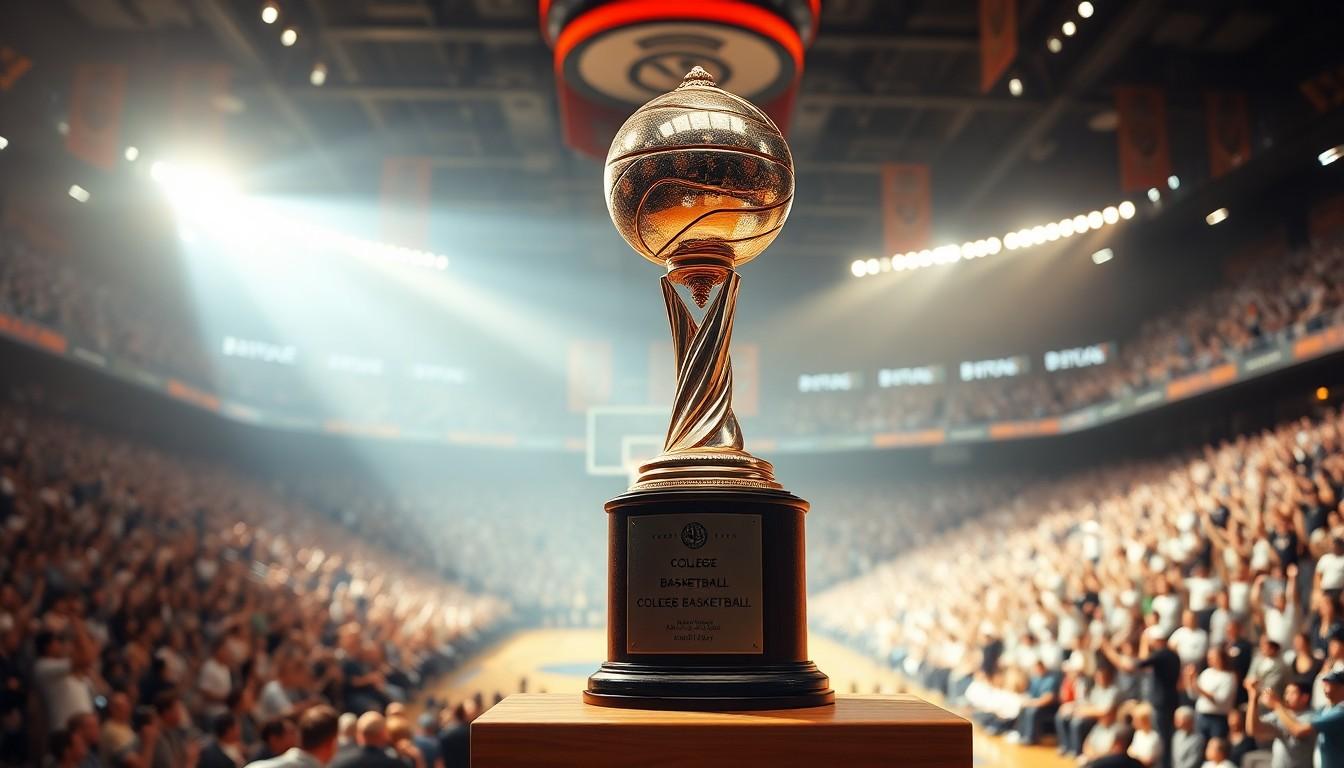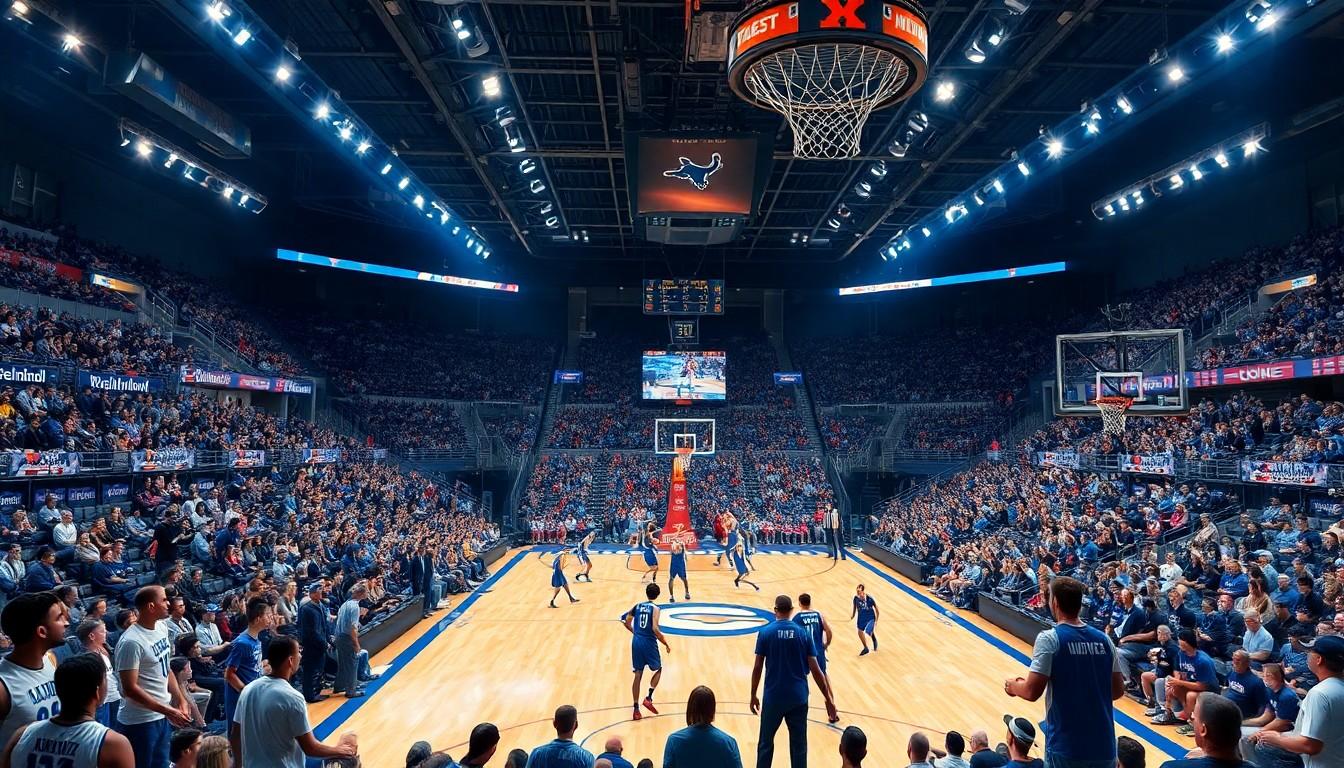When it comes to college basketball, some programs are like the VIPs of the court, flaunting their legacies and championships with the swagger of a seasoned pro. These elite teams, known as “basketball blue bloods,” have dominated the sport for decades, turning every game into a spectacle that fans can’t resist. Think of them as the rock stars of the hardwood, where every dribble and dunk is worthy of a standing ovation.
From thrilling rivalries to unforgettable moments, these programs have built a reputation that’s hard to match. They attract top talent and create a culture of winning that keeps fans coming back for more. So grab your popcorn and settle in, because exploring the world of basketball blue bloods is like diving into a highlight reel of epic proportions. Get ready to discover what makes these teams the crème de la crème of college basketball.
Basketball Blue Bloods
Basketball blue bloods embody the pinnacle of college basketball, showcasing storied programs known for their history of success. These elite teams include the University of North Carolina, Duke University, Kentucky, and Kansas, each contributing significantly to the sport’s legacy. Champions emerge regularly from these programs, solidifying their status with multiple NCAA Tournament victories.
Top recruits gravitate towards these schools, drawn by their winning culture and storied traditions. Legendary coaches often lead these programs, implementing systems that foster both player development and competitive excellence. With passionate fan bases, these teams create an electrifying atmosphere during games, enhancing the overall college basketball experience.
Rivalries among blue bloods capture national attention, with matchups holding immense significance for players and fans alike. Games between these teams often generate record viewership and elevate the prestige of college basketball. Historical performances add to the narrative, showcasing remarkable moments that define the sport.
In addition, consistent success translates into substantial financial benefits for these programs. Revenue generated from television contracts, merchandise sales, and ticket sales contributes to their resources, enabling them to maintain high standards. Such financial stability ensures ongoing investment in facilities and recruiting efforts, preserving their elite status.
Historical Significance

Basketball blue bloods hold a prominent place in college sports history. Their influence reaches beyond wins, shaping the culture of college basketball.
Origins of Basketball Blue Bloods
Basketball blue bloods trace their roots to early NCAA competitions, where elite programs began to dominate. The University of North Carolina and Duke University emerged as powerhouses in the 1980s, establishing a legacy of success. Kentucky’s rich basketball tradition also dates back to the 1940s, with legendary players contributing to its renown. Kansas added to this mix with consistent performances, particularly since the 1950s. These programs laid the groundwork for high-stakes rivalries, fueling interest nationwide. The significant championships each earned further solidified their status as blue bloods.
Evolution Over the Years
Over the decades, these elite programs adapted to the changing landscape of college basketball. Coaching strategies evolved, with icons like Mike Krzyzewski and John Calipari shaping modern play styles. Recruitment practices also transformed, allowing blue bloods to attract top-tier talent consistently. Rivalries intensified, drawing nationwide attention during regular seasons and tournaments. Financial resources expanded, enabling programs to enhance facilities and invest in player development. As a result, basketball blue bloods maintained their elite status, continuing to influence the sport’s direction and popularity.
Key Programs and Their Achievements
Elite college basketball programs, known as blue bloods, showcase a rich history filled with remarkable achievements and legendary figures.
Duke University
Duke University has become synonymous with success in college basketball. Under Coach Mike Krzyzewski, the team secured five NCAA Championships between 1991 and 2015. The program produced numerous NBA players, including Grant Hill and Kyrie Irving, contributing to its legacy. Strong rivalries, particularly with North Carolina, intensify the competition each season. Duke’s Cameron Indoor Stadium serves as a fortress, creating a unique atmosphere that enhances home games.
University of North Carolina
The University of North Carolina stands as a cornerstone in college basketball history. With six NCAA Championships, including key victories in 1982 and 1993, the program has a legacy of excellence. Notable alumni such as Michael Jordan and James Worthy have shaped its identity. Unique to UNC is the tradition of “Carolina Blue,” which fans proudly wear to support the team. Rivalry games, especially against Duke, have become iconic, establishing deep-rooted competition in the sport.
Kansas University
Kansas University consistently ranks among the top blue blood programs. Boasting three NCAA Championships, particularly triumphant in 2008, the Jayhawks have a storied past. Legendary coaches such as Phog Allen and Bill Self have led the program through decades of success. The team’s home, Allen Fieldhouse, boasts one of the most electric atmospheres in college basketball. With a commitment to excellence, Kansas produces talented players who excel at the next level, further enhancing its reputation.
Kentucky University
Kentucky University ranks as one of the most successful basketball programs. With eight NCAA Championships to its name, Kentucky leads all schools in titles. Legendary coach Adolph Rupp built the foundation for sustained success, followed by modern giants like John Calipari. The program’s passion for basketball is palpable in Rupp Arena, where fans create an unforgettable experience. NBA stars such as Anthony Davis and John Wall emerged from this powerhouse, showcasing Kentucky’s ability to nurture elite talent.
Impact on College Basketball
Basketball blue bloods shape college basketball significantly. Their influence is evident in numerous aspects, from player development to contributions in the NBA.
Influence on Player Development
Programs like Duke and North Carolina prioritize player growth. These institutions develop talent through rigorous training and competitive play. Legendary coaches implement strategies that enhance skills and foster teamwork. Players who excel in these environments often gain a deep understanding of the game. Strong mentoring relationships with coaches further support player growth. The emphasis on academic achievement complements athletic training, preparing student-athletes for life after college.
Contributions to the NBA
College basketball blue bloods send a steady stream of talent to the NBA. Schools like Kentucky and Kansas historically produce top draft picks. Their success in the NCAA Tournament attracts scouts and recruiters. Players benefit from exposure in high-pressure situations, aiding their transition to professional basketball. Legendary athletes often return to their alma maters, reinforcing their programs’ reputations. The influence of these schools on the NBA landscape is undeniable, shaping the future of professional basketball.
Rivalries Among Blue Bloods
Rivalries among basketball blue bloods create some of the most exciting narratives in college sports. Fans eagerly anticipate these matchups, often resulting in packed arenas and high television ratings.
Notable Matches
Duke versus North Carolina stands as one of the fiercest rivalries in sports. In the 1992 NCAA Tournament, Christian Laettner’s last-second shot secured Duke’s victory, cementing the rivalry’s intensity. Kentucky and Louisville also showcase a heated competition, with the 1983 game ending in a thrilling overtime win for Louisville. Kansas and Mizzou, known as the Border War, features intense matchups with memorable moments, such as the 2012 showdown where Kansas triumphed in a dramatic finish. These games highlight the stakes involved, amplifying the excitement for both players and fans.
Cultural Impact
The influence of these rivalries extends beyond the court. Rivalries foster deep community ties and unite fan bases. Tailgating and viewing parties become cherished traditions. Schools like Duke and North Carolina embody not just sports, but also academic prestige, elevating their cultural significance. Kentucky’s legacy impacts recruitment, shaping the ambitions of aspiring players. These rivalries reflect regional pride and fuel loyalty, making college basketball an integral part of American culture. Their lasting effects transform how fans experience the sport and contribute to its rich history.
Basketball Excellence
Basketball blue bloods represent the pinnacle of college basketball excellence. Their storied histories and passionate fan bases create an atmosphere that captivates audiences across the nation. These programs not only excel on the court but also shape the future of the sport through player development and intense rivalries.
As they continue to adapt and thrive in an evolving landscape, their influence remains undeniable. The legacy of these elite teams will keep inspiring future generations of players and fans alike. The excitement surrounding their matchups and achievements ensures that college basketball remains a vibrant and essential part of American sports culture.

